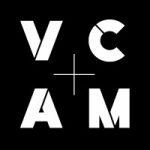“Documentation” to some performance artists and theater makers often means passive, from-a-distance witnessing of live events or ephemeral works that were missed by all but those who experienced them in the moment: you had to be there, but because you weren’t, here are a few relics that in no way should be taken for works themselves, but only, so to speak, documentation.
But other artists and performers treat the camera person, the sound recordist, the editor, etc., as collaborators in the production of a work rather than merely technicians tasked with documenting it. Theirs are not performances that happen to have been recorded but performances designed for recording: the spectator is directly addressed as viewer of media and also as an accomplice, a participant.
Yoko Ono, Joan Jonas, Vito Acconci, Ana Mendieta, Bas Jan Ader, Pipilotti Rist, William Pope.L, Matthew Barney, Kate Gilmore—these and many other 20th and 21st century visual artists work with moving image media to craft, not simply record, their performance practice. The history of narrative, experimental, and documentary cinema too has helped define the terms of mediated performance, of acting for, with, and against the camera, of working in and around and beyond the edge of the frame, of scripting actions that begin in one shot and conclude in another. And Vine—may it rest in pieces—YouTube, and Tiktok have bred their own contemporary forms of camera-ready and camera-smart performance. The performance traditions that emerged in the wake of Dada, Gutai, Actionism, Fluxus, conceptual art, performance art, postmodern dance, and social practice, engage with film and new technologies and draw upon developments in documentary and experimental film. The fields are rich, the technologies diverse; bodies, voices, sites, times, and spaces are all material for contemporary media makers.
In other words, performance is as savvy to what cameras do and have been doing since the beginning of cinema and television and the internet as it is steeped in performance history.
This DocuLab hopes to thoughtfully engage with these knowledges and the resources that filmmakers and performers can share with one another, all in the interest of creating a research platform where makers of performance and makers of film can be co-inquirers and collaborators.
The 2021 DocuLab For, With, and Against the Camera: Performance Cinema will begin with an early June performance workshop led by BBB Johannes Deimling with support from media maker Monika Deimling. Since 2008 the Deimlings have conducted over 70 PAS (Performance Art Studies) workshops: short, multi-day intensives, with training in performance fundamentals, usually organized around a theme. These workshops, they write on their website, are “practical work sessions, in which performative experiments and questions are tested and shared amongst the participants. We use experiments, exercises, tasks, games, assignments, and ‘homework’ to widen the palette of perception, awareness, and learning. Likewise, we offer direct reflections and analyses of made experiences. Discussions, feedback, storytelling, drawing, writing and documentation are constant companions of the practical work that are specifically selected to fit the research topic.”
The DocuLab PAS workshop will explore the relationship between bodies, cameras, sound equipment, and editing tools. Everyone in the workshop will perform, shoot, record sound, and complete short films. After the workshop and for the rest of the summer, the Fellows, guided by the faculty Lead, Production Coordinator, and local Philadelphia performance coaches—performance artists, dancers, and theater makers—will convene to use these performance and media platforms to examine topics of their own devising. To guide and enrich these summer activities, there will be group critiques, individual meetings with the faculty Lead, and tech workshops on advanced digital cinema skills; other support will be provided as needed.
The DocuLab will conclude with a fall omnibus performance event, screening of experimental and narrative shorts, and installations by students. The Deimlings will attend, present their work to the community, provide critical feedback, and meet with other interested students. Support for subsequent festival submissions and festival attendance by student makers will be provided as well to insure sustainable practice. Finally, and throughout the process, the Lab will aim to model new curricula for performance studies, visual studies, and digital cinema at Haverford.

